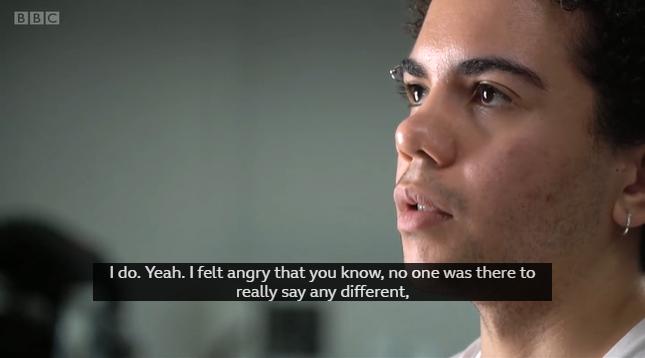
LONDON — A woman in England who was given puberty blockers and male hormones as a teen is speaking out as she regrets the decision and wishes the medical community wouldn’t have given her what she wanted so easily.
“I should have been challenged on the proposals or the claims that I was making for myself,” Keira Bell, 23, told the BBC earlier this month. “And I think that would have made a big difference as well, if I was just challenged on the things I was saying.”
Bell, who displayed some tomboy aspects as a child, was 14 years old when she started seriously thinking about presenting herself as a boy.
“I think it was more of a problem that society had than I had with myself when looking back on it,” she recalled to the outlet, stating that she wouldn’t have felt pressure to change herself if the world had accepted her more for who she was.
Bell began to read about sex changes online and soon visited her doctor, who referred her to the Tavistock Gender Identity Development Service (GIDS) clinic. Staff demonstrated “no resistance” to her desire to identify as male, according to the Daily Mail.
After three one-hour meetings, she was placed on hormones blockers and soon also testosterone, which deepened her voice and stimulated facial hair.
“My female hormones had been flushing through my body, and suddenly, a curtain came down on them. It felt pretty bad,” Bell recalled. “‘I had symptoms similar to the menopause when a woman’s hormones drop. I had hot flashes. I found it difficult to sleep. … I was given calcium tablets because my bones weakened.”
She said that, nonetheless, she initially felt happy about the course of action she was on — thinking that it would relieve her depression — and and went on to have a double mastectomy.
However, the excitement wore off, and looking back at those years, she realizes that she just kept trying to change herself because the last effort didn’t really solve her problems.
“I just felt like each step I consistently felt the need to change more in order to feel better, because [with] each step, it didn’t really make me feel better as I went along,” Bell stated.
Last year, she stopped taking the hormones and came to terms with the fact that she is a woman. She became upset at what she had allowed to do at a young age.
“I felt angry that no one was there to really say any different,” Bell explained. “I was allowed to run with this idea that I had, or almost a fantasy as a teenager … and it’s affected me in the long run as an adult.”
“I am constantly taken for a boy,” she told the BBC. “I get called ‘sir’ when I speak to officials. I worry what women think when they see me using their loos or changing rooms.”
Bell said that she realized as the happiness was wearing off that one could either “continue and dig yourself deeper into this hole or you can choose to come out of it and have the weight lifted off your shoulders and just live naturally and how you are, really.”
Bell is one of two plaintiffs in a lawsuit against the Gender Identity Development Service, as she believes that the practices of the clinic are harmful to youth in that the facility does not “allow for exploration of these gender dysphoric feelings, nor does it seek to find the underlying causes of this condition.” She does not feel that such major decisions can be made so young.
“The treatment urgently needs to change so that it does not put young people, like me, on a torturous and unnecessary path that is permanent and life-changing,” she said, according to The Christian Institute.
 As previously reported, while some view transgenderism as a medical condition, Christians believe the matter as a spiritual issue — one that stems from the same predicament all men everywhere face without Christ.
As previously reported, while some view transgenderism as a medical condition, Christians believe the matter as a spiritual issue — one that stems from the same predicament all men everywhere face without Christ.
The Bible teaches that all are born with the Adamic sin nature, having various inherent feelings and inclinations that are contrary to the law of God, and being utterly incapable of changing by themselves.
It is why Jesus came: to “save His people from their sins” (Matthew 1:21).
Scripture outlines that Jesus came to be the propitiation for men’s sins (1 John 2:2; 1 John 4:10), a doctrine in Christianity known as substitutionary atonement, and to save men from the wrath of God for their violations against His law (Romans 4:25, Romans 5:9, Romans 5:16), a doctrine known as justification.
The Bible also teaches about regeneration, as in addition to sparing guilty men from eternal punishment, Christ sent his Holy Spirit to make those who would repent and believe the gospel new creatures in the here and now, with new desires and an ability to do what is pleasing in the sight of God by His indwelling and empowerment (Ezekiel 11:19, 2 Corinthians 5:17, Titus 3:5).
Jesus said that men must be born again, and have their very nature transformed by the Spirit from being in Adam to being in Christ, or they cannot see the Kingdom of God (John 3:3-8).
Isaiah 55:1-3 says, “Ho, every one that thirsteth, come ye to the waters. And he that hath no money; come ye, buy, and eat. Yea, come, buy wine and milk without money and without price. Wherefore do ye spend money for that which is not bread, and your labor for that which satisfieth not? Hearken diligently unto Me, and eat ye that which is good, and let your soul delight itself in fatness.”
“Incline your ear, and come unto Me. Hear, and your soul shall live, and I will make an everlasting covenant with you, even the sure mercies of David.”
Become a Christian News Network Supporter...


